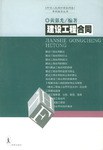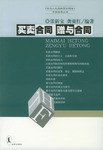

具体描述
In The Later Middle Ages, the third volume of his monumental History of Political Ideas, Eric Voegelin continues his exploration of one of the most crucial periods in the history of political thought. Illuminating the great figures of the high Middle Ages, Voegelin traces the historical momentum of our modern world in the core evocative symbols that constituted medieval civilization. These symbols revolved around the enduring aspiration for the sacrum imperium, the one order capable of embracing the transcendent and immanent, the ecclesiastical and political, the divine and human. The story of the later Middle Ages is that of the "civilizational schism"—the movement in which not only the reality but the aspiration for the sacrum imperium gradually disappeared and the unification of faith and reason dissolved.
His recognition of this civilizational schism provides Voegelin with a unique perspective on medieval society. William of Ockham, Dante, Giles of Rome, and Marsilius of Padua all emerge in Voegelin's study as predecessors to modern thought; each turns to personal authority and intellectual analysis in an attempt to comprehend the loss of the sacrum imperium as an authoritative ideal. Voegelin is further drawn into investigations that, despite insufficient attention by scholars, still bear relevance to the study of the later Middle Ages. The mysticism apparent in Piers Plowman and the apocalyptic revolt of Cola di Rienzo are merely two reactions to the disintegration of wholeness.
Yet the story of the later Middle Ages does not merely revolve around disintegration. Voegelin recognizes the emergence of the constitutional political tradition as the most positive development of this period. He is at his best when explaining the difference between the presence of a representative institution and the growth of communal consciousness. Voegelin's study of the English political pattern is matched only by his unique perspective on the German imperial zone, culminating in a fitting conclusion on Nicholas of Cusa—the one political thinker with the ability to evoke the unity of mankind beyond fragmentation.
The Later Middle Ages is at once a brilliant examination of the symbols that characterized medieval society and a remarkable predecessor to Voegelin's study of the modern world, beginning with the Renaissance and the Reformation.
作者简介
About the Author
Eric Voegelin (1901-1985) was one of the most original and influential philosophers of our time. Born in Cologne, Germany, he studied at the University of Vienna, where he became a professor of political science in the Faculty of Law. In 1938, he and his wife, fleeing Hitler, emigrated to the United States. They became American citizens in 1944. Voegelin spent much of his career at Louisiana State University, the University of Munich, and the Hoover Institution at Stanford University. During his lifetime he published many books and more than one hundred articles. The Collected Works of Eric Voegelin will make available in a uniform edition all of Voegelin's major writings.
About the Editor
David Walsh is Professor of Politics at the Catholic University of America in Washington, D.C. He is the author of The Growth of the Liberal Soul and After Ideology: Recovering the Spiritual Foundations of Freedom.
目录信息
13. Character of the Period 37
§1. Suspense between the Middle Agres and the Renaissance 37
§2. Shift of Politics to the West 39
§3. The Clash between the Church and the Nations 40
a. Imperial Policy and Foreign Policy
b. The Hierarchy of Powers
14. The Absolue Papacy桮iles of Rome 43
§1. The Unam Sanctam 43
§2. Giles of Rome (Aegidius Romanus) 46
a. The Mysticism of Hugh of Saint Victor
b. The Intellectual and His Will to Power
c. Theory of Power
d. Papal Power
e. The Sacrificium Intellectus
f. Ecclesiastical Totalitariansim
15. French Kingship 54
§1. The Problem of Royal Power 54
§2. Independence from Imperial Power 55
§3. John of Paris� Tractatus de Potestate Regia et Papali 56
§4. Thaumaturgic Kingship 57
§5. Charles of Anjou 59
§6. Pierre Dubois 61
16. Dante 66
§1. The Isolation of the Political Thinker 66
§2. The Separation of Spirit from Politics 68
§3. Spiritual Realism桾he Earthly Paradise 70
§4. Literary Forms and Symbols of Authority 72
§5. The Letters 74
§6. The De Monarchia 74
a. The Universal Intellect: Averroism
b. Intellectual and Hegemonic World Organization
c. The Myth of the Italianità
§7. The Vision of Purgatorio 29-33 78
17. Marsilius of Padua 83
§1. The Beginning of German Constitutional Development 83
§2. The Defensor Pacis 84
§3. The Relation to Artistotle 86
§4. The Organic Analogy 87
§5. The Problem of Intramundane Representative Authority桾he Legislator 88
§6 Limited Government桰talianism 91
§7. Averroist Naturalism 94
§8. The Pars Principans 95
§9. The Plurality of Warring States 96
§10. The Law 97
§11. Christianity and the Church 97
§12. The Esoteric Creed 99
§13. Political Technicism 101
18. William of Ockham 103
§1. A Pattern of Theory桾he Problem of William 103
§2. Nominalism and Fideism 106
§3. Secular Civilization and the Withdrawal of the Church 109
§4. The Last Phase of Franciscan Spiritualism 112
§5. William's Method of Politics 115
§6. Theory of Law 117
§7. The Order of the World and the Order of Poverty 118
§8. The Pope and the Church 120
§9. The Empire 122
§10. Reduction of the Substance to Relations 123
§11. The Power of Ultimate Decision桾he Council 124
§12. Conclusion 125
19. The English National Polity 127
§1. Insularity桝bsence of Disturbing Factors 128
§2. The Integrating Sentiments桾he Magna Carta 131
§3. The Institutions 135
a. The Strength of Royal Power
b. Articulation and Integration of the Body Politic
c. Comparison with Continental Development
d. English Constitutionalism
§4. Symbols 144
§5. Representation 145
a. Defintion
b. The Writs of Summons
c. Representation and Articulation
d. The Realm
§6. Fortescue 155
20. From Imperial to Parochial Christianity 163
§1. The Transformation of the Church Organization 164
§2. The English Reaction 167
§3. Wycliffe桮eneral Character 168
§4. The Regional Spiritual Movements 171
§5. English Spiritualism� Piers Plowman 175
§6. Wycliffe桪octrines 184
21. The Imperial Zone 193
§1. Subimperial Politics 193
a. Imperial and Subimperial Politics
b. The East Frankish Kingdom and Italy
c. The Concentration of Royal Power and the Interregna
d. The Colonization of the East
e. Summary
§2. The Golden Bull 203
a. Charles IV
b. The Form of the Golden Bull
c. State- Imperium and World- Imperium
d. The Electoral College桾he Majority Problem
e. The Oligarchy of the Princes
f. Lupold of Babenberg
§3. The City-States 216
a. The Area of the City-States
b. The Towns and the Feudal World
c. Trade Routes and Food Supply
d. The Fourth Crusade桺ower Distribution in the Eastern Mediterreanean
e. The Organization of the Venetian Conquest
f. Burgundy
g. The Hansa
h. Southwest German Leagues
i. The Swiss Confederation
j. The Internal Structure of the Towns
k. The Constitution of Venice
§4. Cola di Rienzo 233
a. State of the Problem
b. The Letters to the Italian Cities
c. The Tribunus Augustus
d. National and Imperial Sentiments
e. The Emissary of the Fraticelli
f. Spiritual Nationalism and Military Unification
22. The Conciliar Movement 245
§1. The Schism桾he General Councils 245
a. The Schism
b. Conrad of Gelnhausen桯enry of Langenstein
c. The Decree Frequens
d. Nominalism and Jurisdictionalism
§2. Gallicanism桾he National Concordats 252
a. The French National Council of 1398
b. The French National Council of 1406
c. The Concordats
§3. Concordantia Catholica 256
a. Nicholas of Cusa
b. Spiritual Harmony
c. Infinita and Gradualis Concordantia
d. Hierarchical Order
e. The Augmentation of the Corpus Mysticum
f. Nature and Grace
g. Institutional Elaboration
h. The Concordantia of Mankind
· · · · · · (收起)
读后感
五一去济南度蜜月旅行,陪老婆逛街之余,在新华书店发现了刘老师主编的这套书,就买了下来,买了四本,花了150多银子,回家从孔网上一查发现多花了一百多,气愤啊!!!! 我是三流大学毕业的,缺乏正规的学术训练,对于政治学仅仅是个人爱好,因此刚刚读完两个导言,就...
评分五一去济南度蜜月旅行,陪老婆逛街之余,在新华书店发现了刘老师主编的这套书,就买了下来,买了四本,花了150多银子,回家从孔网上一查发现多花了一百多,气愤啊!!!! 我是三流大学毕业的,缺乏正规的学术训练,对于政治学仅仅是个人爱好,因此刚刚读完两个导言,就...
评分五一去济南度蜜月旅行,陪老婆逛街之余,在新华书店发现了刘老师主编的这套书,就买了下来,买了四本,花了150多银子,回家从孔网上一查发现多花了一百多,气愤啊!!!! 我是三流大学毕业的,缺乏正规的学术训练,对于政治学仅仅是个人爱好,因此刚刚读完两个导言,就...
评分五一去济南度蜜月旅行,陪老婆逛街之余,在新华书店发现了刘老师主编的这套书,就买了下来,买了四本,花了150多银子,回家从孔网上一查发现多花了一百多,气愤啊!!!! 我是三流大学毕业的,缺乏正规的学术训练,对于政治学仅仅是个人爱好,因此刚刚读完两个导言,就...
评分五一去济南度蜜月旅行,陪老婆逛街之余,在新华书店发现了刘老师主编的这套书,就买了下来,买了四本,花了150多银子,回家从孔网上一查发现多花了一百多,气愤啊!!!! 我是三流大学毕业的,缺乏正规的学术训练,对于政治学仅仅是个人爱好,因此刚刚读完两个导言,就...
用户评价
相关图书
本站所有内容均为互联网搜索引擎提供的公开搜索信息,本站不存储任何数据与内容,任何内容与数据均与本站无关,如有需要请联系相关搜索引擎包括但不限于百度,google,bing,sogou 等
© 2025 book.quotespace.org All Rights Reserved. 小美书屋 版权所有




















